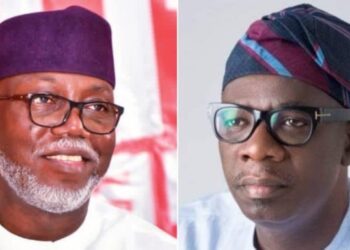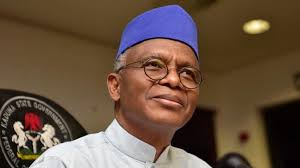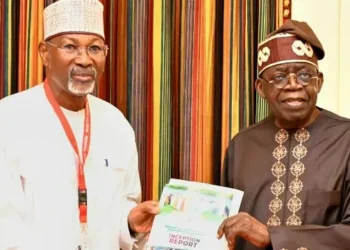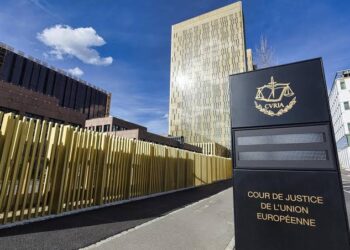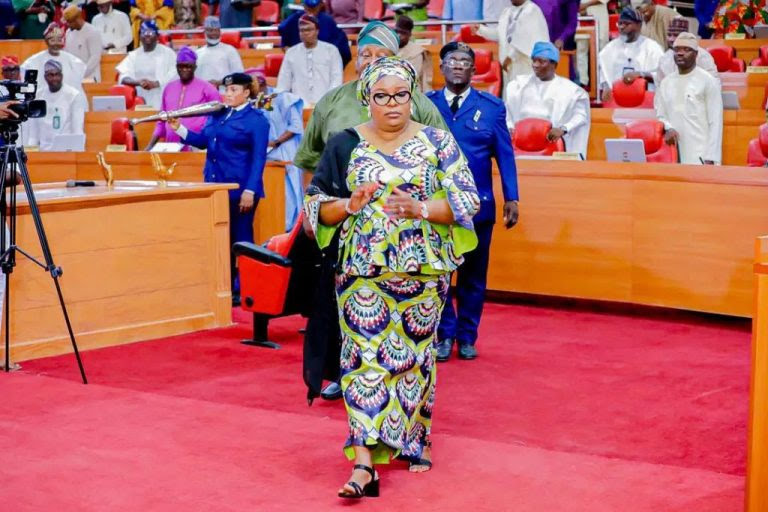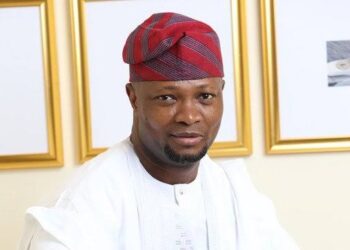BY: IBRAHEEM MUHAMMAD MUSTAPHA
In the intricate tapestry of life, Nigerian students, myself inclusive, find ourselves at a unique intersection where threads of our course of study, exposure to new knowledge, socioeconomic class, and the whims of fate intertwine. I feel compelled to shed light on this fascinating nexus that determines how young minds develop in Nigerian universities because of the widespread wave of disappointment, depression, and complaints voiced by many colleagues who find themselves studying courses that are considered “obsolete” in the context of modern Nigeria.
Specifically, to spark a paradigm shift, to change their way of thinking, and to offer a new viewpoint that awakens their latent potential. It is a way of proving that every course holds immense value. Of challenging my dear colleagues to redefine the narrative, and to dispel the shadows of doubt and embrace the brilliance that lies within. As I embark upon this exploration, I am reminded of the famous quote by Francis Bacon, “Knowledge is power.”
The decision of one’s course of study in the pursuit of higher education becomes the compass that directs intellectual development and career objectives. It is disappointing to see, though, how many Nigerian students set out on this journey with veiled eyes, unaware of the possibilities that lie ahead in the courses they have chosen.
We explore the realm of exposure to new knowledge by drawing on the proverb “Know thyself,” which dates back to ancient Greece. It is crucial for Nigerian students to be exposed to the revolutionary waves of innovation that crash onto the shores of the academic landscape in an age marked by rapid technological breakthroughs. The fact that so many students are left in the dark about the forces of change that shape global industries and fuel economic progress, however, remains a persistent problem.
Meanwhile, the dream and aspirations of Nigerian students are coloured by class, an ever-present prism through which society refracts. A powerful force, class influences not only the opportunities that unfurl before eager eyes but also the mind set with which individuals approach their educational journeys.
Can we then encourage the next generation to reach for the stars amid the huge expanse of untapped potential, or will the constrictive gravity of traditional career routes endure, repeating a circle of limited prospects? And then, we cast our gaze towards the enigmatic realms of fate and faith, those intangible spirits that whisper secrets into the hearts of students. They are the elusive variables that add another layer to the complexity of decision-making, intertwining with personal beliefs and cultural norms.
Can the aspirations of a young mind be harnessed to defy the confines of predetermined destinies, guided by the wisdom of sages who remind us that we are the architects of our own fortunes?
Dear readers, this voyage through the intersection of a student’s course of study, exposure to new information, class, and fate in Nigerian institutions will reveal the complexities that underpin the academic environment.
Together, we shall unveil the difficulties faced by students yearning for clarity, embrace the imperative of adapting to the relentless tide of technology, and consider the ways in which faith and societal constructs shape the choices we make. Albert Einstein once said, “In the middle of every difficulty lies opportunity.”
Keep that in mind as we begin this illuminating adventure. It is within the nexus of challenges and complexities that we uncover the golden thread that will lead Nigerian students towards an empowered and prosperous future. As we navigate the intersection of knowledge, destiny, and personal development, I invite you to join me on this thought-provoking journey.
Unveiling the Veiled Horizons: Embracing the Uncharted Frontiers and Unleashing the Potential within Diverse Disciplines
Choosing a programme of study is the warp and weft that weaves a student’s intellectual and professional journey in the big fabric of education.
Yet, as I reflect upon the plight of Nigerian students, I am reminded of the words of the esteemed poet Robert Frost, who famously took the road less travelled, knowing that it would make all the difference. In the realm of Nigerian higher education, a lamentable pattern emerges—a dearth of knowledge and understanding concerning the diverse array of courses available.
Many students, driven by societal expectations and the allure of perceived prestige, gravitate towards a select few fields deemed “professional.” The oft-chanted mantra of aspiring doctors, lawyers, and engineers reverberates through the universities hallways, while other career options are ignored, disregarded, or unfairly dismissed as being unprofessional or unprofitable.
Let’s dare to step outside the conventional boundaries and seize the remarkable potential that are concealed within the boundaries of frequently disregarded disciplines. Think about the fascinating field of the humanities and arts.
The knowledge of the vast fabric of human experience and expression lies within the reach of disciplines like Islamic Studies, English Language, Linguistics, and Literature. They promote the development of critical thinking, empathy, and cultural appreciation—aspects crucial for maintaining an inclusive society.
As we continue on our journey, we come across the area of the social and physical sciences—a setting where Mathematics, Physics, Chemistry, Sociology, Political Science, Criminology, and more interact to illuminate the complexities of human behaviour, societal structures, and the scientific phenomena that shape our world.
These fields have a lot of potential since they can give students intellectual strength, problem-solving abilities, and the ability to influence constructive change in our societies. The life sciences—biochemistry, microbiology, botany, and plant biology—hold the key to unlocking the mysteries of life itself. Let’s not overlook them.
The study of nature and the complexity of biological systems becomes crucial in a world facing serious environmental issues. These disciplines pave the way for innovations in health care, ecological preservation, and sustainable agriculture, providing chances to influence the environment in which we live.
Dear Reader, let’s keep in mind the timeless words of the Greek philosopher Socrates as we traverse this uncharted territory: “The only true wisdom is in knowing you know nothing.” Let’s free ourselves from preconceived conceptions and embrace the vast expanse of knowledge awaiting our eager minds. Let’s disprove the myth that Nigerian students only have a few professional alternatives available to them.
Let’s stoke the fires of inquiry and investigation while pushing past the bounds of tradition and embracing the many avenues that education offers. The foundations for creativity, comprehension, and societal change are planted in the fields of the arts and humanities, social sciences, and biological sciences. Let us keep in mind Aristotle’s wise words as we move forward: “Educating the mind without educating the heart is no education at all.”
The visionary scientist Nikola Tesla once said, “The day science begins to study non-physical phenomena, it will make more progress in one decade than in all the previous centuries of its existence.”
Dear Reader, let us keep this in mind as we go through these various disciplines. These courses have limitless potential that is just waiting to be realised by Nigerian students with the courage to venture into unexplored territory. Let’s equally rejoice, dear reader, that Nigerian students have a potent tool in their arsenal: the ability to adjust to and embrace the waves of knowledge that are constantly changing. Students taking “conventional” courses can open the doors to creativity and relevance by being exposed to new knowledge.
Consider, for a moment, the world of mathematics. Beyond the mere manipulation of numbers and equations, the modern landscape of this discipline intertwines with the cutting-edge domains of data science, artificial intelligence, and machine learning. Armed with a solid foundation in mathematics, students can venture into the realms of predictive analytics, algorithmic trading, cryptography, and more. The once-static whiteboard transforms into a doorway to untapped potential, empowering brains to resolve challenging issues, optimize processes, and unearth patterns buried behind enormous amounts of data.
Physics, the study of the underlying principles governing the cosmos, is also at the centre of the current technological revolution. The laws of physics permeate every aspect of our interconnected world and are no longer restricted to textbooks and lab experimentation.
The frontiers of physics beckon inquisitive minds to push the limits of what is feasible in fields ranging from telecommunications and space exploration to quantum computing and renewable energy technologies.
Chemistry, with its graceful ballet of atoms and molecules, interacts with developments in materials science, nanotechnology, and biotechnology. It possesses the secrets to creating environmentally friendly materials, creating life-saving medicines, and comprehending the complex processes that define our physical world. The alchemy of chemistry is no longer just practised in dingy labs; it is alive and pulsing in the fields of invention and technological development.
Let’s imagine a future when people with minds honed in mathematics, physics, and chemistry become problem solvers, trailblazers, and pioneers in the field of technology rather than succumbing to the stagnation fuelled by a system of education that is only partially fostered. Consider a young maths student who, armed with skills in data analysis and programming, uses the power of artificial intelligence to transform medical diagnoses. Or picture a physicist who is passionate about renewable energy and who leads the charge in creating sustainable power solutions to usher in a more environmentally friendly future. Imagine a chemist who develops ground-breaking materials through interdisciplinary collaboration, revolutionising industries and altering lives.
A world riches in ecological knowledge and sustainable practises awaits people with an inquisitive spirit within the field of agricultural science. There has never been a greater pressing need for crop cultivation, animal management, and the preservation of natural resources.
Nigerian students majoring in agricultural science have the potential to effect radical change and pave the way for increased food security, environmental protection, and economic development. In honour of the fact that they are the guardians of the land, let’s congratulate them and acknowledge that their knowledge is essential to securing a prosperous future. Although frequently overshadowed by their medical equivalents, the fields of biochemistry and microbiology provide a range of scientific research that goes far beyond the walls of a hospital ward.
These fields explore the complex processes that occur within cells, which are the basis for all life. The potential for innovation and effect is endless, from solving the mysteries of diseases to making ground-breaking advancements in biotechnology and genetic engineering. The future of industry, science, and health could be potentially shaped by Nigerian students studying biochemistry and microbiology. The complicated tapestry of the human body is included within the fields of anatomy and physiology, which are occasionally disregarded in favour of medicine.
These disciplines provide Nigerian students a unique perspective because they delve deeply into the inner workings of our bodily systems. While their medical peers may enjoy the spotlight, these students must realise the great potential that is within their reach. Their comprehension of the human body has applications in biomedical research, physical therapy, sports science, and even the creation of cutting-edge medical devices. Let’s motivate these youngsters to surpass their imagined constraints and recognise the incredible difference they can make.
The field of linguistics, which is frequently undervalued, provides the key to comprehending the enormous complexity of language and communication. Nigerian students majoring in linguistics have the potential to overcome cultural barriers, protect endangered languages, and promote efficient communication in a world that is becoming more and more interconnected.
They might work as language advisers, interpreters, translators, or even pioneers in the fields of artificial intelligence and natural language processing. Let’s honour language’s power and beauty while encouraging students to take use of all the options available to them in the field of linguistics. The complex fabric of religion, culture, and society knowledge can be found within the fascinating field of Islamic Studies. Nigerian students majoring in this field have the potential to advance peace, encourage interreligious dialogue, and strengthen the social fabric of their country. By connecting the dots between spirituality, history, and current challenges, they can become academics, educators, or social justice activists. Let’s be mindful of the enormous potential these students have to help create a society that is more inclusive and harmonious.
As a conclusion to part 1 of this thought-provoking article, let’s embrace the transforming power of exposure to fresh knowledge and free ourselves from the constraints of constrained viewpoints. Nigerian students studying the so called “obsolete” courses have a world of possibilities at their fingertips. Remember what eminent scholar Carl Sagan said: “Somewhere, something incredible is waiting to be known.”
The extraordinary is hiding in the world of technology, invention, and problem-solving, waiting to be found by those who have the courage to follow the ever-evolving currents of knowledge. The immense potential that we, Nigerian students possess must be seen above the shadows imposed by what are considered to be “elite” courses. We could forge a route towards growth, societal transformation, and a more inclusive and affluent Nigeria via our creative thinking, commitment, and unshakable devotion.


![El-Rufai accuses Tinubu of Sponsoring Crises in PDP, Labour Party, others [Video]](https://ideemlawful.com/wp-content/uploads/2025/03/images-2-23-75x75.jpeg)









![El-Rufai accuses Tinubu of Sponsoring Crises in PDP, Labour Party, others [Video]](https://ideemlawful.com/wp-content/uploads/2025/03/images-2-23-350x250.jpeg)
